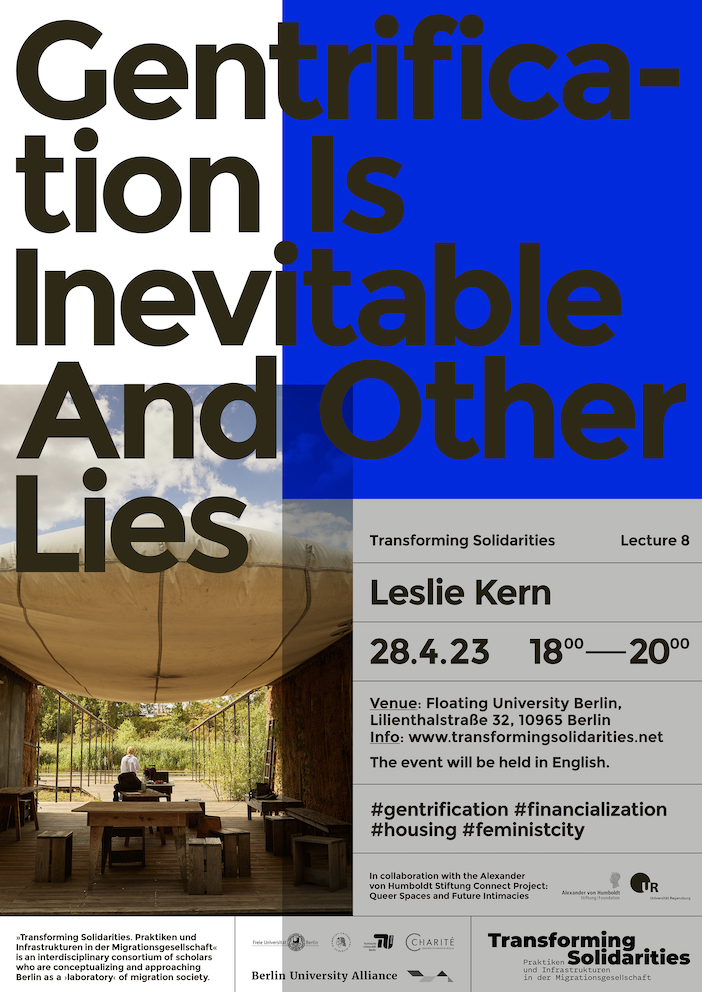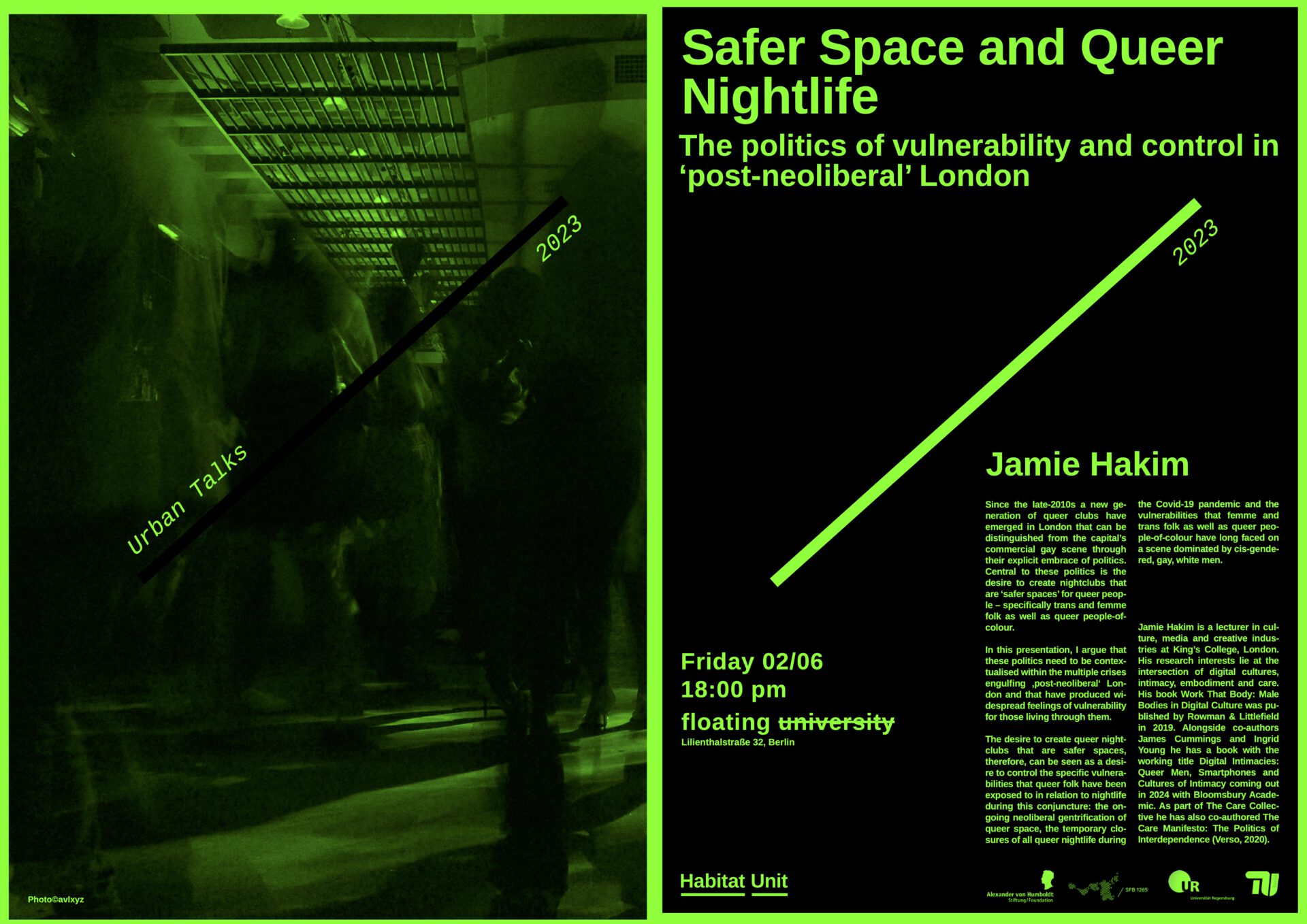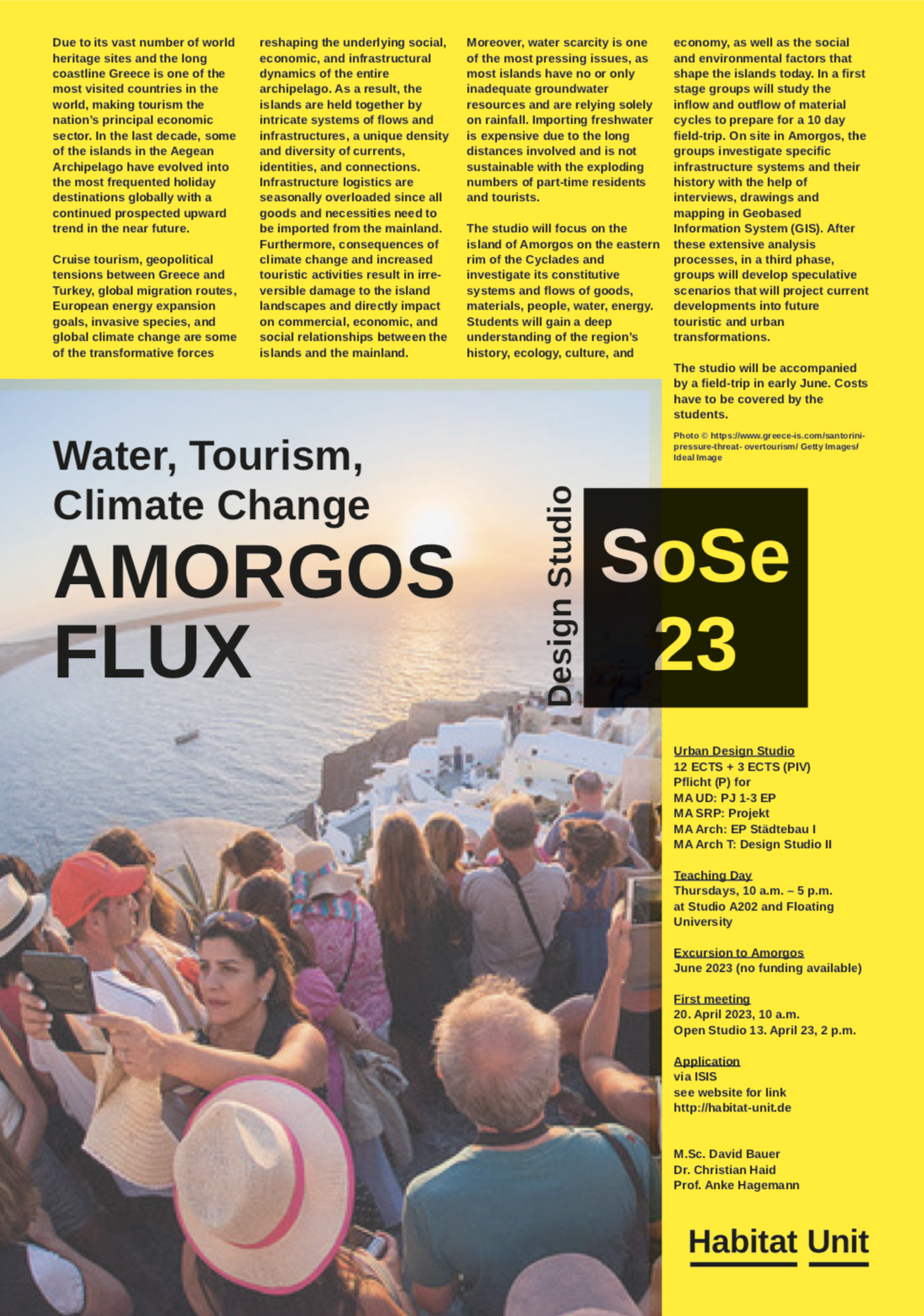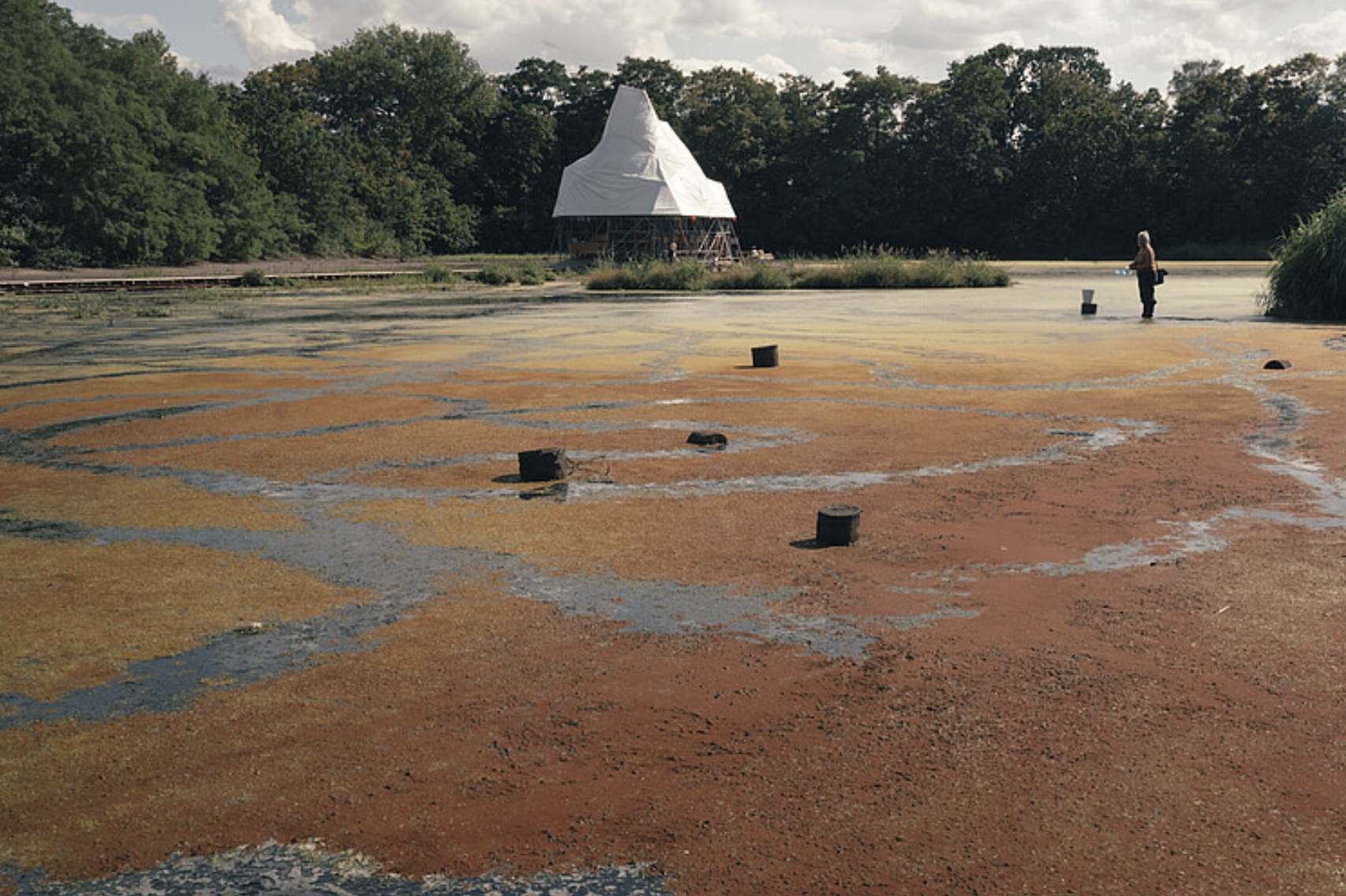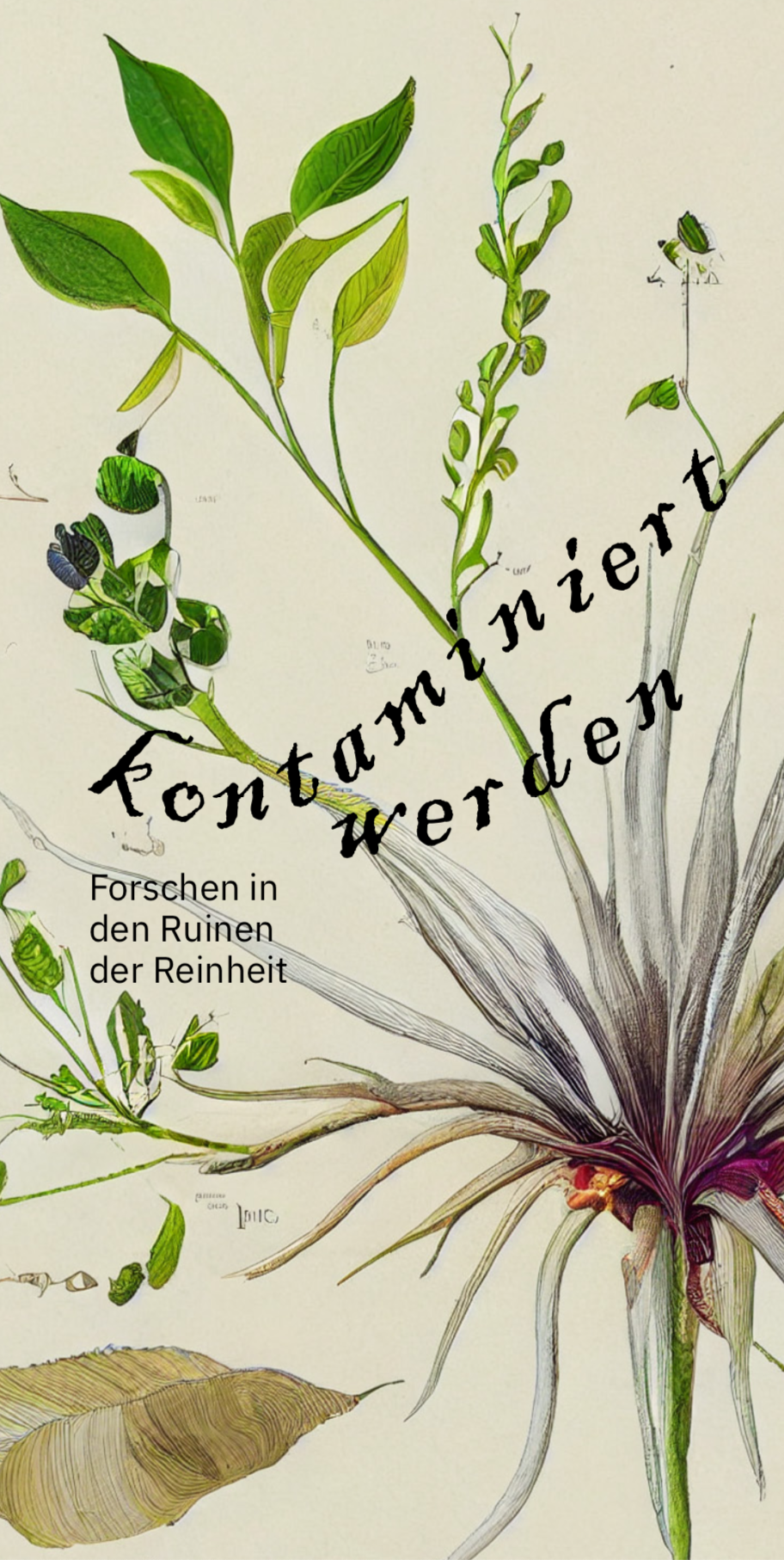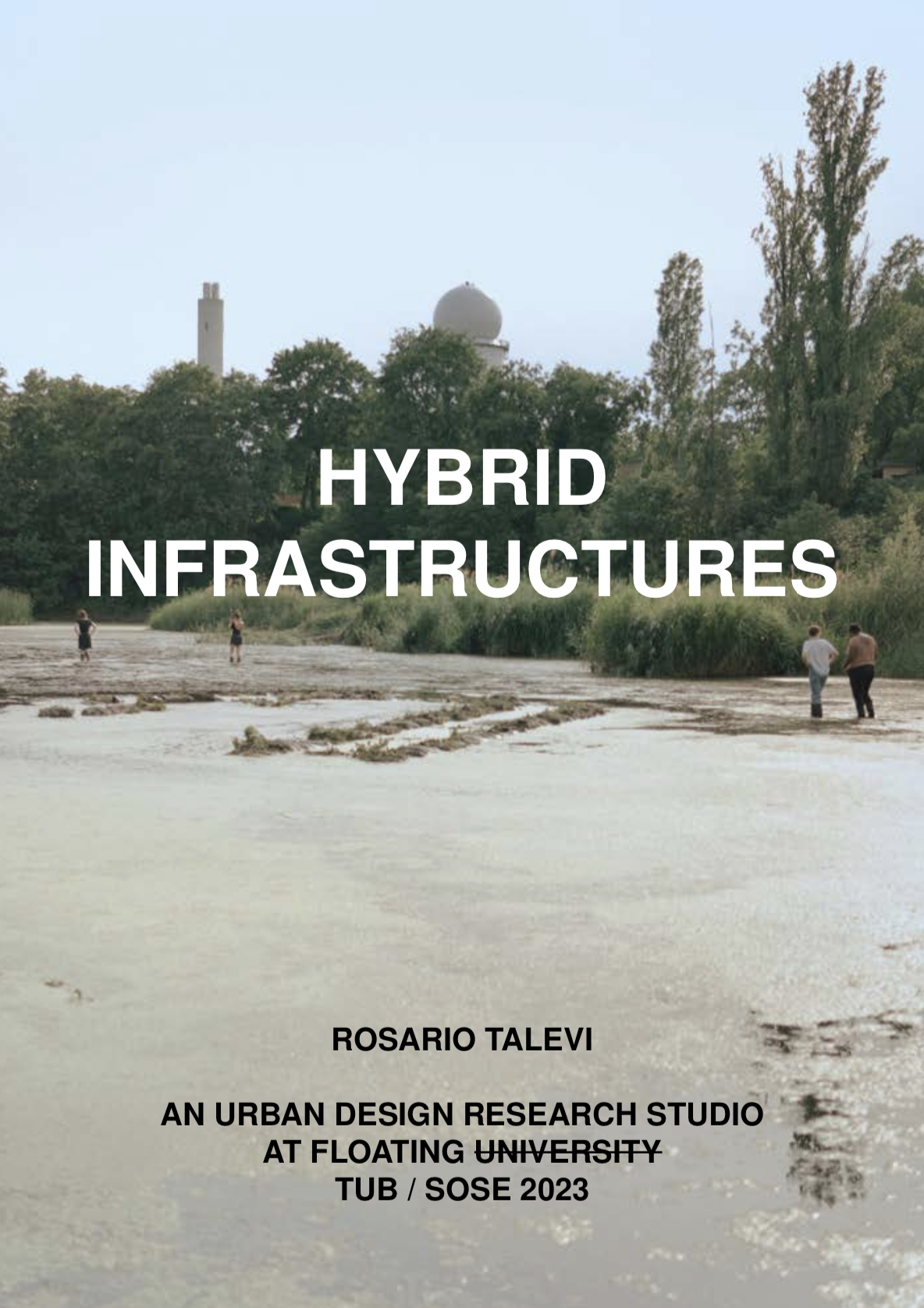Learnscapes 2023
Building on Floating University’s various international collaborations with universities since 2018, we invite student groups – with or without teachers – to exercise their academic program on site and thus shape the Floating Learnscapes. We would like to see students from all kinds of disciplines exchanging, researching and building sandcastles simultaneously in our inner city offshore campus. They might range from critical research, questions of social, architectural, urban and environmental concerns and designs, to the making of a functioning of spaces for learning, communication, commoning and a self-organized civil society.
Unsealing Floating
The future of the Floating site is always being negotiated, sometimes contested. Floating e.V. follows a vision for a Floating infiltration basin, in which the concrete of the basin is replaced with gravel that biologically filter the polluted water so it can be used for swimming and to water neighbouring gardens, local parks and graveyards, before seeping into the ground (rather than entering the Spree untreated). Whether this vision is going to be implemented by the landlords and authorities or not, is still unclear. And so is the role of Floating University in this transformation process.
(How) Can Floating University become an active agent of transformation in the process of unsealing and redesigning the rainwater basin? How can the temporary natureculture learning site turn into a hybrid infrastructure with a long-term perspective (an infiltration basin as a blue-green infrastructure, a learning space, an urban practice campus, an artistic free space laboratory, a cultural venue)? Concepts like the 15 Minute City as well as Sponge City (Schwammstadt) could be examined in relation to Floating.
Unsealing Floating is an open invitation to all visiting student groups to generate knowledge on the topic of unsealing and support Floating University in becoming an agent of transformation, proving expertise in a self-driven spatial transformation and eventually – hopefully – combining an infiltration basin with a learning landscape – through a community of practice. We like to resonate this knowledge within the association as well as with our strategic partners in the city administration.
At Learnscapes, we aim to un-, re- and co-learn. With this in mind, we want to approach the topic of unsealing by collecting a multitude of definitions and practices. Beyond the literal spatial transformation of the rainwater basin, in which Floating is entangled, the act of unsealing can be understood as emancipatory, radical, liberating.
Sous les pavés, la plage! Unsealing – questioning established planning processes, breaking out of institutional borders and entrenched learning methods, developing new ways of practice-based knowledge production, envisioning alternative futures and narratives.
Formats 2023
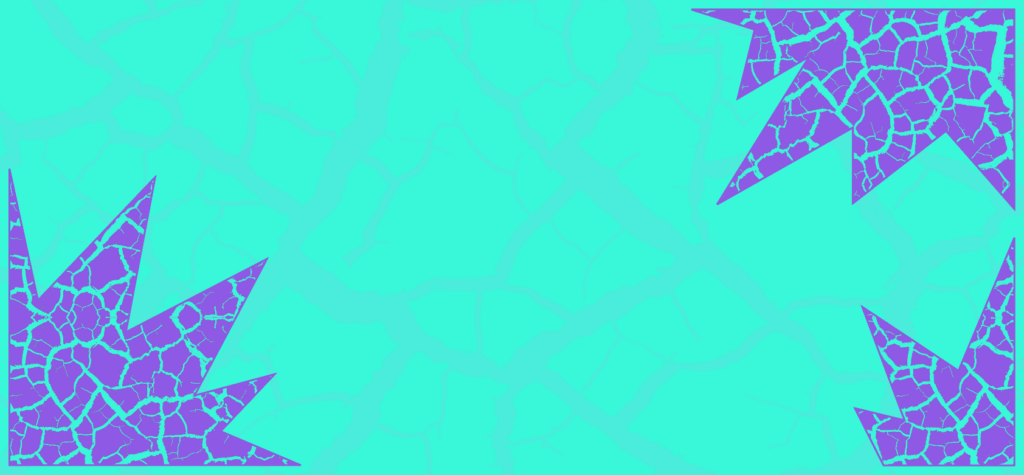
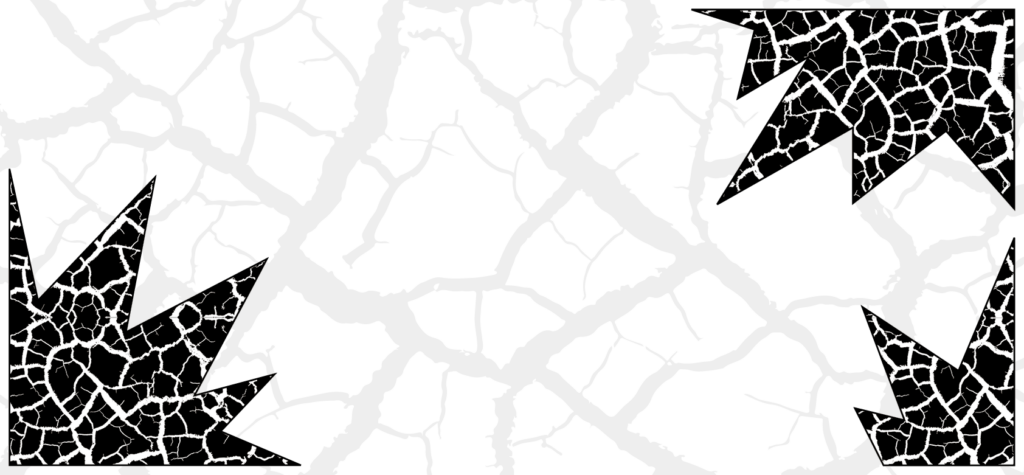
UNSEALING
Midterms 2023
Programme – Summer 2023
University Regensburg / TU Berlin, Habitat Unit
Spaces of Solidarity
Queer Spaces in the Pandemic
Anna Steigemann and Moritz Ahlert
Transforming Solidarities Lecture Series
Gentrification Is Inevitable And Other Lies. How Gentrification is killing our cities, and what we can do about it.
Leslie Kern (Mount Allison University)
Friday, 28. April 2023, 6 – 8 pm
What does gentrification look like? Can we even agree that it is a process of displacement? It is a question of class? Or of economic opportunity? Who does it affect the most? Is there any way to combat it?
Leslie Kern, author of the best-selling Feminist City, travels from Toronto, New York, London, Paris and San Francisco and scrutinizes the myth and the lies that surround this most urgent urban crisis of our times. First observed in 1950s London, and theorized by leading thinkers such as Ruth Glass, Jane Jacobs and Sharon Zukin, this devastating process of displacement now can be found in almost every city and neighborhoods. Beyond the Yoga studio, farmer’s market and tattoo parlor, gentrification is more than a metaphor, but impacts the most vulnerable communities and is part of the wider financialization of our cities.
Leslie Kern proposes an intersectional way at looking at the crisis that seek to reveal the violence based on class, race, gender and sexuality. She argues that gentrification is not ‘natural’. That it cannot be understood in economics terms, or by class. That it is not a question of taste. That it can only be measured only by the physical displacement of certain people. Rather, she argues, it is a continuation of the settler colonial project that removed natives from their land. Gentrification today is rising rents and evictions, transformed retail areas, increased policing and broken communities. But if gentrification is not inevitable, what can we do to stop the tide? In response, Leslie Kern proposes a genuinely decolonial, queer- feminist anti-gentrification. One that demands the right to the city for everyone and the return of land and reparations for those who have been displaced.
Transforming Solidarities Lecture Series
Urban Talks
Safer Space and Queer Nightlife: The politics of vulnerability and control in ‘post-neoliberal’ London
Jamie Hakim
Friday, 02. June 2023, 6 – 8 pm
Since the late-2010s a new generation of queer clubs have emerged in London that can be distinguished from the capital’s commercial gay scene through their explicit embrace of politics. Central to these politics is the desire to create night clubs that are ‘safer spaces’ for queer people – specifically trans and femme folk as well as queer people of colour. Historically understood as spaces of transformation, transcendence and liberation, why have some queer clubs started to describe themselves as spaces of safety, comfort and protection over the past few years?
Using a broadly Gramscian approach, I argue that the emergence of safer space politics in the context of London’s queer nightlife can be understood as a symptom of the ‘post-neoliberal’ conjuncture, in which, since 2015/6, elements of neoliberalism stubbornly persist despite no longer being hegemonic (Davies and Gane, 2022). In London, as elsewhere in the Global North, this has produced an all-pervasive sense of unsettling crisis defined by feelings of vulnerability as well as the desire for control over these feelings.
The desire to create queer nightclubs as safer spaces can be seen as a desire to control the specific vulnerabilities that queer folk have been exposed in relation to nightlife during this conjuncture: the ongoing neoliberal gentrification of queer space, the temporary closures of all queer nightlife during the Covid-19 pandemic and the vulnerabilities that femme and trans folk as well as queer people of colour have long faced on a scene dominated by cis-gendered, gay, white men.
In this paper I explore the techniques and discourses used by these clubs to create safer spaces and then reflect on what it means not only for queer cultural politics, but the post-neoliberal conjuncture more broadly, that queer nightlife is being understood as primarily a space of safety as opposed to liberation, transformation and transcendence.
Jamie Hakim is a lecturer in culture, media and creative industries at King’s College, London. His research interests lie at the intersection of digital cultures, intimacy, embodiment and care. His book Work That Body: Male Bodies in Digital Culture was published by Rowman & Littlefield in 2019. Alongside co-authors James Cummings and Ingrid Young he has a book with the working title Digital Intimacies: Queer Men, Smartphones and Cultures of Intimacy coming out in 2024 with Bloomsbury Academic. As part of The Care Collective he has also co-authored The Care Manifesto: The Politics of Interdependence (Verso, 2020).
TU Berlin, Habitat Unit
Amorgos Flux. Water, Tourism, Climate Change
Summer semester 2023, Thursdays
Dr. Christian Haid, David Bauer, Prof. Anke Hagemann
Many of the arid islands have evolved into urbanized tourist destinations influenced by global and national economic and political developments that transformed these regions in unprecedented ways, reshaping the underlying social, economic, and infrastructural dynamics of the entire archipelago. As a result, the islands are held together by intricate systems of flows and infrastructures, a unique density and diversity of currents, identities, and connections.
Cruise tourism, geopolitical tensions between Greece and Turkey, global migration routes, European energy expansion goals, invasive species, and global climate change are some of the transformative forces shaping the region with significant ecological and social consequences.
Infrastructure logistics are seasonally overloaded since all goods and necessities need to be imported from the mainland. Furthermore, consequences of climate change and increased touristic activities result in irreversible damage to the island landscapes and directly impact on commercial, economic, and social relationships between the islands and the mainland. Moreover, water scarcity is one of the most pressing issues, as most islands have no or only inadequate groundwater resources and are relying solely on rainfall. Importing freshwater is expensive due to the long distances involved and is not sustainable with the exploding numbers of part-time residents and tourists.
The studio will focus on the island of Amorgos on the eastern rim of the Cyclades and investigate its constitutive systems and flows of goods, materials, people, water, energy. Students will gain a deep understanding of the region’s history, ecology, culture, and economy, as well as the social and environmental factors that shape the islands today. In a first stage groups will study the inflow and outflow of material cycles to prepare for a 10 day field-trip. On site in Amorgos, the groups investigate specific infrastructure systems and their history with the help of interviews, drawings and mapping in Geobased Information System (GIS). After these extensive analysis processes, in a third phase, groups will develop speculative scenarios that will project current developments into future touristic and urban transformations.
Berlin University of the Arts, Building Planning and Design
studio raumproduktion 23: “designing for the more than human”
Summer semester 2023, Tuesdays
Prof. Markus Bader, WM Silvia Gioberti, TU Carmina Henzler-Carrascal, Philip Weiss Tornes
In the design project “designing for the more than human” we look at the floating University as a case study. We aim at designing support structures for other ways of being together on a damaged planet. Within the design project we will familiarize with theories about the feminist city, the anthropocene and Bruno Latour’s ideas about the “critical zone” – describing the thin layer of life between dead rock deep down under us and dead outer space high above us as the critical zone. Here we cohabitate with all other living beings on earth.
Floating University will act as a lens and condenser for these conversations and as a projection surface for design ideas looking for possible futures. The project is structured in three phases.
In phase one we familiarize ourselves with the context of floating. We learn about the stakeholders, power structures, dynamics and processes. We also learn about the five year history of floating University, how it´s Association grew and is organised and how floating is made from day to day. We learn about amphibiae and other endangered species. With this broad reading of floating contexts, we learn how to situate ourselves in contested grounds.
In phase two. We will be designing and potentially implementing interventions in one to one scale within floating, that propose spatial situaitons of cohabitation and inter-species dialogue.
In phase three we look out towards the future and produce explorative imaginaries and speculative designs for a floating University where humans, animals, plants and other living beings live together in mutual support.
We are going on an excursion to Taranto in the south of Italy. Taranto is a special place. Like the Floating, it is a kind of “contaminated paradise”. The small town, idyllically situated by the sea, is surrounded by a gigantic raw material and industrial area for ore and iron processing on the one hand and a large NATO base on the other. We connect with the group “Post Desaster” on site, which opens up the roofscape of Taranto as concrete spaces of action for cultural and civil, common agency.
We will network with local experts who will show us how is possible to change a situation that at first glance seems hopeless – ecologically, socially, economically – with different, creative approaches.
X-Tutorial, Berlin University Alliance
Kontaminiert werden. Forschen in den Ruinen der Reinheit
X-Tutorial für Masterstudierende aller Fachrichtungen
19.04.-26.07.2023
Jann Mausen, Kulturwissenschaft, HU Berlin
Jona Möller, Landschaftsarchitektur, Urban Design, TU Berlin
unterstützt von Prof. Dr. Robert Stock, Institut für Kulturwissenschaft, HU Berlin gefördert durch die Berlin University Alliance
Anna Tsings Feldberichte im Feral Atlas (2020) erzählen von wilden, ungezähmten Ökologien. Diese gehen zwar auf von Menschen konstruierte Infrastruktur zurück, entfalten sich aber über die menschliche Kontrolle hinaus und sind durch mehr-als-menschliche Akteure geprägt.
Diese Perspektive rebelliert gegen eine anthropo- zentrische Lesart des Anthropozäns und kritisiert tradierte Konzepte der Reinheit und Kontamination.
Wir fragen uns: Wie könnte ein Feral Atlas von Berlin aussehen? Mit dem X-Tutorial möchten wir Orte kontaminierter Diversität in den Stadträumen Berlins erforschen. Unsere Forschungsgruppe wird sich entlang von experimentellen Workshops neue Zugänge zur mehr-als-menschlichen Stadt erschließen. Ziel des X-Tutorials ist die Publikation eines Magazins, das aus wissenschaftlich-künstlerischen Beiträgen der Studierenden besteht.
METU Budapest, Faculty of Arts
Artistic Research of the Flotolis Collective
19.-23. April 2023
Anna Kudron
We explore the relationship between ecology and art – through an independent research process, consultation and an intensive one-week practical and collaborative project. The project aims at the research itself, the use and purification of water and the environment, artistic manifestations and documentation of the research process.
Preparation and research in Budapest and online, the one-week project work is planned to take place at the Floating University site in Neukölln, Berlin, in the Tempelhofer Feld area, within the framework of the Learnspaces project. They will be part of a process of discovery, with the city and NGOs focusing on the use of the airport and its surroundings (nowadays mainly used for leisure activities, with many areas closed and in need of re-development), which has a troubled past. The plan is to use and organise natural, existing and textile materials to create installations and digital works, open to the public – possibly through walking or shared content.
TU Berlin, Urban Design
Urban Design research Studio
Summer Semester 2023
Rosario Talevi
Today, urban infrastructures have become complex and messy. They can be seen as much more than just old pipes, cables, and containers. Urban infrastructures are deeply entangled with the landscape and the biodiversity of the environment in which they intervene. This entanglement is further complicated by the fact that urban infrastructures are traditionally sites of expertise. These infrastructures appear difficult to read and, as a result, impossible to alter.
But what happens when an urban infrastructural space is opened up, its function hybridized and its use collectivized? What protocols, routines, schedules and choices manifest when an urban infrastructure is infused with care: softened and layered with diverse meanings? Can these new circumstances transform urban infrastructures into spaces for commoning and stages for public debates?
The urban design research studio takes on the site of Floating University – the rainwater retention basin serving Tempelhofer Feld – and the situation of Floating e.V. – an in-depth cohabitation between the constructed water infrastructure, its human culture and its other-than-human overlays.
Departing from the idea of learning as a form of living and responding to contemporary conversations about social and environmental justice as well as histories of alternative narratives for urban development the studio’s point of convergence is the feminist approach to spatial practices. This approach is reflected in the emphasis on the very process of space-making and its collective nature over its finite form, as well as on the inclusion and recognition of the equally significant agency that all objects (buildings, infrastructures), people, and species have in the continuous co-creation,maintenance and reconfiguring of all material relations within the built environment.
Students are invited to engage with the site and its complex ecology while acknowledging that we are situated in relation, in cohabitation, with an infrastructural site and its many living forms. After an initial collective research phase, students develop their very own site-responsive projects: from small interventions, theoretical propositions to playful, imaginative spatial strategies in a variety of formats for this hybrid infrastructure.
Universität der Künste Berlin, Fakultät Gestaltung, Architektur
ZuGÄNGE zum Stadtraum
20.+21.05. und 03.+04.06. jeweils von 10.00-15.30h
Mirjana Mitrović (+Studierende der Architektur und Visuellen Kommunikation)
Studierende erforschen mit der Künstlerin und Wissenschaftlerin Mirjana Mitrović die Möglichkeiten des flânierens. Anhand feministischer und postkolonialer Theorien wird die Figur des flâneurs hinterfragt. In praktischen Übungen werden eigene Erfahrungen in und über die Stadt gesammelt.
In diesem Seminar treffen wir uns an zwei Wochenenden in der floating University und werden verschiedene Zugänge zum Stadtraum theoretisch betrachten und experimentell austesten. Dabei fokussieren wir uns auf Praktiken des Gehens – insbesondere auf die Möglichkeiten der flânerie. Zunächst wird die ursprüngliche Figur des flâneurs, der im 19. und 20. Jahrhundert durch europäische Städte streift, untersucht und anschließend mithilfe feministischer und postkolonialer Theorien aktualisiert und hinterfragt. In den praktischen Übungen wird der Frage nachgegangen, wie diese urbane Praxis ein kritischer Zugang zum Stadtraum sein kann. Dabei wird erprobt, inwiefern die flânerie mehr als Gehen ist und wie die gesammelten Erfahrungen, Reflexionen und Erkenntnisse den Blick auf und für die Architektur schärfen können. Abschließend werden gemeinsam die Ergebnisse in einem Zine zusammengetragen.
University of Arts and Design Karlsruhe Medienkunst, Kunsthochschule Kassel Grafik Design & A Place in the Woods
A Place, and another Place Assembling, Disassembling, Reassembling
17.-19.05.2023
Bruno Jacoby, Johanna Schäfer & Karolina Sobel
A Place in the Woods is an exhibition platform and a collective. They work in natural, public spaces and on the internet. Their work circles around two questions: The human as the primary recipient of cultural production. & The defining parameters of a space in opposition to landscape or surroundings. They examine exhibitions in public and transitional spaces. The members of A Place in the Woods are fluid and shifting around a core team.
This seminar experiments with an open public natural space as a democratic way of exhibition making. In two workshops students from the Kunsthochschule Kassel and HfG Karlsruhe meet in two specific settings. At the Floating University in Berlin and in the Black Forest near Karlsruhe , to develop a group exhibition in response to the setting. The sites and artistic methodology intend to create the focus for the investigation of a broader framework. Sharing the air, permanent human and non-human inhabitants, ecological and architectural conditions are just as relevant as gestures of hosting, inviting, showing and authorship.
https://a-place-in-the-woods.net
Akademie der Künste Stuttgart
Myths for the Future to Explore
3-day workshop, 18-20 September 2023
Floating University, Berlin
Antonia Low, Linda Weiß
What is the rainwater collection basin of Tempelhof airfield made of? Which layers can be found beyond its concrete surface? How can soil be detoxified in a natural way? These are the questions with which we will begin our artistic exploration of the Floating University Berlin.
Since the quality of the soil has already been scientifically analysed in 2021 and 2022, we would like to artistically explore the material remains and layers of the site. Over the course of three days, the focus will be on terrestrial action: we, as temporary occupants of the habitat, will dig and extract the material above, inside and below the surface seal for our explorations. Speculative narratives emerge with sensory techniques, based on established analyses. We explore the old material for new forms and functions; we experimentally initiate plant cleansing processes. From layers emerge stories, objects, nutrients, biotopes. Artistic designs are developed for the forthcoming unsealing of the entire area as a speculative process for the site’s future.
Unsealing:Diciplines
Nelly Binner, Teresa Awa, Barbara-Rosa Siévi, Clarisse Jähn
06.08.2023
Unsealing:Concept
This summer, the Floating University is dealing with unsealing processes, i.e. with how the previously sealed retention basin at Tempelhofer Feld can be made liveable for a wide variety of creatures. As part of the Learnscapes Network at the Floating University, we – a group of four students from architecture, documentary photography, water management and philosophy who are concerned with sustainability, feminisms and de-colonial issues – would like to contribute to this process by bringing together different perspectives and ideas on what unsealing means and what challenges, opportunities and possibilities lie in the design of such a process. The topic is discussed in many different ways in various disciplines – artistically, from scientific, philosophical, architectural, socio-political, and many other perspectives – but less often we work together on such questions. Our plan is to bring together these many individual discourses and create a space that offers students the opportunity to work together on the topic of unsealing in an interdisciplinary way. The basis of this discussion is a data collection to which ideas, resources, arguments, associations, or any kind of input on the topic of unsealing can be contributed. This data collection serves as the core of the further work in the workshops. It offers the starting point for a deeper engagement with unsealing processes and is in a constant state of change, as it can always be expanded and supplemented. We will collect the data for the collection over the summer in the course of some pop-ups at the Floating and via Open Call. Since we want to create a space that is thematically as well as methodologically open to a wide variety of people, perspectives and approaches, we want to keep the data collection and also the workshops as open in format as possible. We are more interested in experimenting with what hybrid ways of working and perspectives can emerge when the most diverse discourses on unsealing interweave.
Unsealing:Workshop
We would like to open this space for interdisciplinary work to accompany the symposium as a drop in drop out format. The temporal organisation is flexible, we would adapt to the time structure of the symposium. The workshop will begin with a joint introduction to the situation at the Floating and to the data collection we have brought with us. This is followed by a round of introductions. In this round, participants can choose an element of the data collection, present themselves and a connection of their own discipline to it (up to here c.a 45min, afterwards drop in drop out possible). Now follows a working phase in small groups of about 3-6 persons. The groups can orientate their work on individual questions. For example: What do you imagine for the “Rain- water-Basin” in the future? The aim of the work phase is to produce an interdisciplinary result in the groups that can be inserted into the data collection. We can work with the database and with materials we have brought with us. We provide a printer and bring computers that can also be used for larger-scale research. Depending on the work process of the groups, a joint check-in takes place in the large group after one to a maximum of two hours (30 min). The groups can present their work and exchange experiences. After the check-in, there is the possibility to hand in the work and results to the data collection and to turn to another programme item, or to continue projects that have been started. The check-in is also another opportunity for new participants to join. After the check-in, a further working phase follows according to the same structure. In this phase, projects can be finished or new projects can be started. The workshop ends with a joint wrap-up. Again, experiences and results can be exchanged. The workshop concludes with an outlook on the future of data collection.
